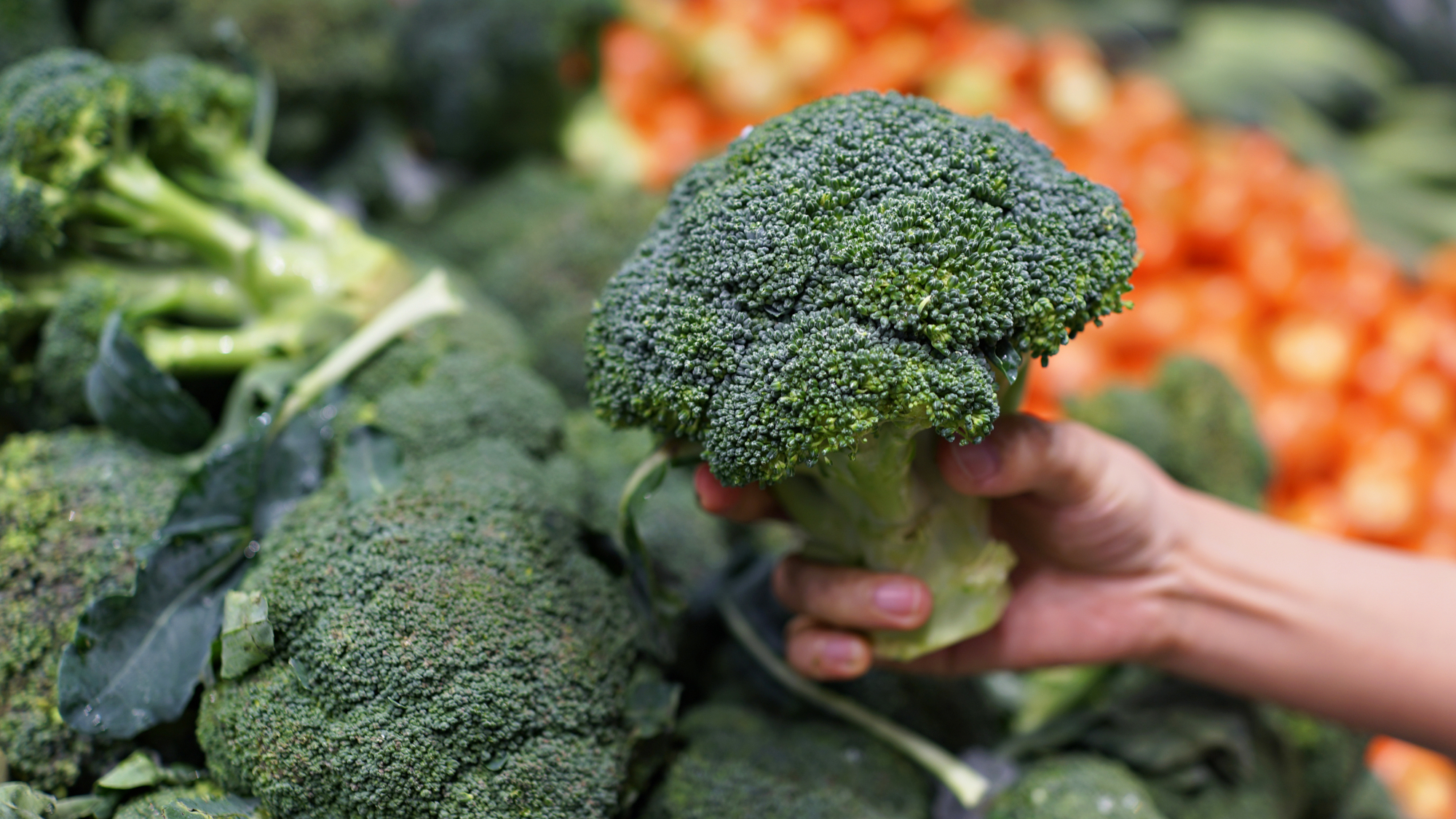Which vitamins do you really need for bone health?
A registered dietitian talks us through the vitamins you should focus on for bone health


Our bones naturally weaken over time, so making sure you're doing everything you can to maintain bone health and strengthen them is a good plan. You can do this partly through resistance training, but it's also important to make sure you're getting enough of the right vitamins.
But should you be stocking up on the best vitamin D supplements or is it better to focus calcium and iron? And do we need to take tablets or can we get everything from our diet? We asked registered dietitian Clare Thornton-Wood to explain.
“Building strong bones during infancy to adolescence is important, as is maintaining this throughout the lifespan,” says Thornton-Wood. “If bones do not reach their peak strength up to adolescence and young adulthood, then they are at greater risk of losing strength as they get older, leading to osteopenia and then potentially osteoporosis.”

Thornton-Wood is a spokesperson for the British Dietetic Association (and was awarded Spokesperson of the Year 2019) and a registered dietitian based in the UK. She works as a Paediatric Dietitian in London for the NHS and private practice.
Which vitamins are needed for bone health?
Vitamins K, D, C, and A are all needed for bone health, says Thornton-Wood. Here's how to make sure you're getting enough of each one.
Vitamin K
According to Thornton-Wood, “Vitamin K is important as it activates the calcium-binding actions of GLA protein and osteocalcin, a protein associated with building bones and maintaining them.”
It's found in many foods, so you don't necessarily need to take it in supplement form. Instead, you can find it in leafy greens, like kale and spinach, as well as broccoli, beef liver, chicken liver and prunes. Thornton-Wood adds that people on blood thinners should actually steer clear of vitamin K supplements, as taking them can interfere with other medications.
Start your week with achievable workout ideas, health tips and wellbeing advice in your inbox.
Because vitamin K is fat-soluble, it’s recommended to eat vitamin K-rich foods with some fat to improve absorption. So, drizzle some olive oil over your favorite green leafy salad, or add chopped avocado as a side dish.
Vitamin D
Vitamin D helps the body absorb and use calcium, which gives bones their strength and hardness (more about this later). The symptoms of vitamin D deficiency include fatigue, back pain, and frequent illness, so it's important to stay topped up.
“Vitamin D goes through a two-step process to convert active vitamin D in the body — firstly it is converted to calcidiol in the liver, and it can be stored in this form,” explains Thornton-Wood.
“Then it is converted to calcitriol in the kidneys, the active form. It absorbs calcium and phosphorus from the gut in this state, both of which are important for bone health.”
The best food sources of vitamin D are fatty fish and fish liver oils, while smaller amounts can be found in egg yolks, cheese, beef liver and mushrooms.
“While vitamin D is made by the sun, you can take it as a supplement, and a few foods are fortified with vitamin D, such as breakfast cereals, yogurts and some fruit juices,” says Thornton-Wood.

Vitamin C
Vitamin C is found in citrus fruits, bell peppers, strawberries, tomatoes and cruciferous vegetables (broccoli, Brussels sprouts, cabbage, cauliflower) and it’s an important nutrient for maintaining bone health.
It’s also essential in the production of collagen in bone matrix, says Thornton-Wood, and it scavenges free radicals that are detrimental to bone health.
It’s important to note that taking vitamin B-12 with vitamin C might cancel out the effects of both. To avoid this, take vitamin C at least two hours after taking a vitamin B-12 supplement.
There are other vitamins that should not be taken together, so be sure to check before you add supplements to your daily routine.
Vitamin A
A study published in Endocrine Reviews found that the main skeletal effect of vitamin A was to increase bone reabsorption, but later research found that while it stimulated bone growth, it also inhibited it.
Zinc is required to help transport vitamin A through the body. A zinc deficiency will limit the body's ability to move vitamin A stores from the liver to body tissues. You can find vitamin A in carrots, sweet potato, spinach, liver, eggs and mango.
“Vitamin A has been linked to good bone health because it stimulates osteoblasts (bone building cells) and osteoclasts (bone breaking down cells) and takes part in the carboxylation of many bone-related proteins,” says Thornton-Wood.
“But too much (more than 10,000IU per day) can be harmful to bone health, so take care if you are taking lots of different supplements containing vitamin A.”
What else can you do to boost bone health?

Exercise — particularly strength training — is really important for bone health, says Thornton-Wood. This is because putting stress on bones through exercise could push bone-forming cells into action.
“A healthy weight is essential for bone mass,” says Thornton-Wood. Being underweight puts you more at risk of developing bone disease, while being overweight puts extra strain on bones, she says.
Extreme dieting is also bad for bones. As you drop pounds, bone mass goes, too. But if you regain the weight, you won’t get the density back, putting you more at risk of fractures.
“Smoking and drinking more than three units of alcohol in a day also impacts bone health,” says Thornton-Wood. Specifically, a study in the Journal of Osteoporosis demonstrates tobacco smoking causes an imbalance in the mechanisms of bone turnover, leading to lower bone mass and bone mineral density (BMD) making bone vulnerable to osteoporosis.
Calcium is a really important nutrient for bone health. Along with phosphorus, it contributes to the production of the mineral hydroxyapatite, which provides the strength and density within bones.
But bear in mind that calcium cannot work without vitamin D and K. Vitamin D enables the absorption of the calcium into the blood and vitamin K then acts as a carrier to help deliver calcium to the bones. Therefore, ensuring the consumption of calcium alongside vitamin D and vitamin K is crucial for bone health.
Maddy Biddulph is a journalist specializing in fitness, health and wellbeing content, with 26 years in consumer media working as a writer and editor for some of the bestselling newspapers, magazines and websites in the US and UK, including Marie Claire, The Sunday Times and Women’s Health UK.
She is a CIMPSA-certified PT and works one-on-one with clients, as well as running Circuits Club classes which mixes cardio and strength training and chair-based exercise classes for seniors.
